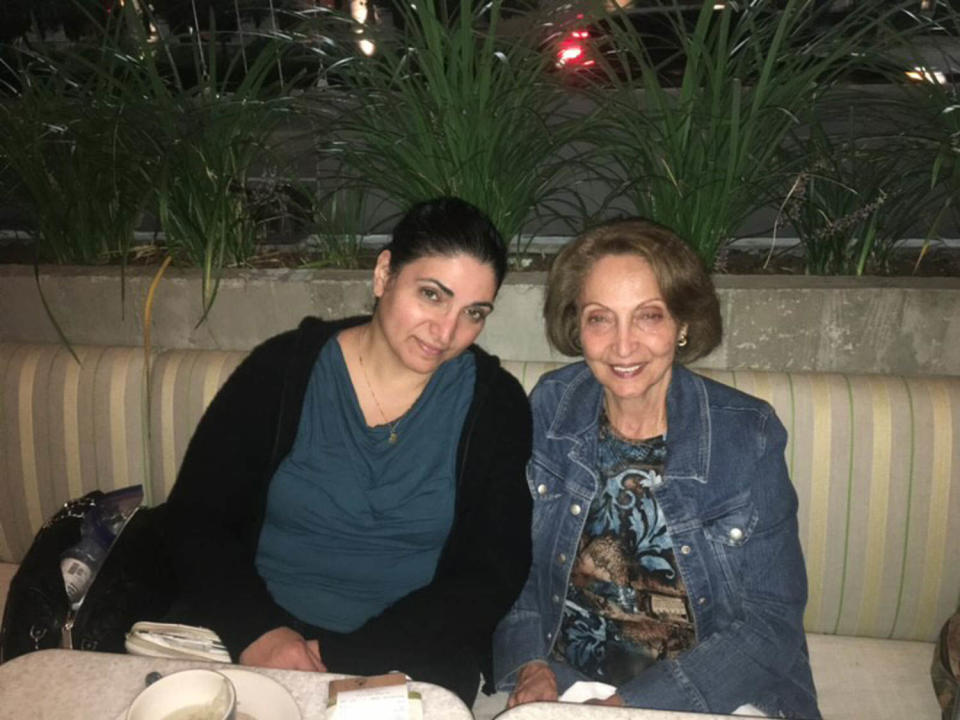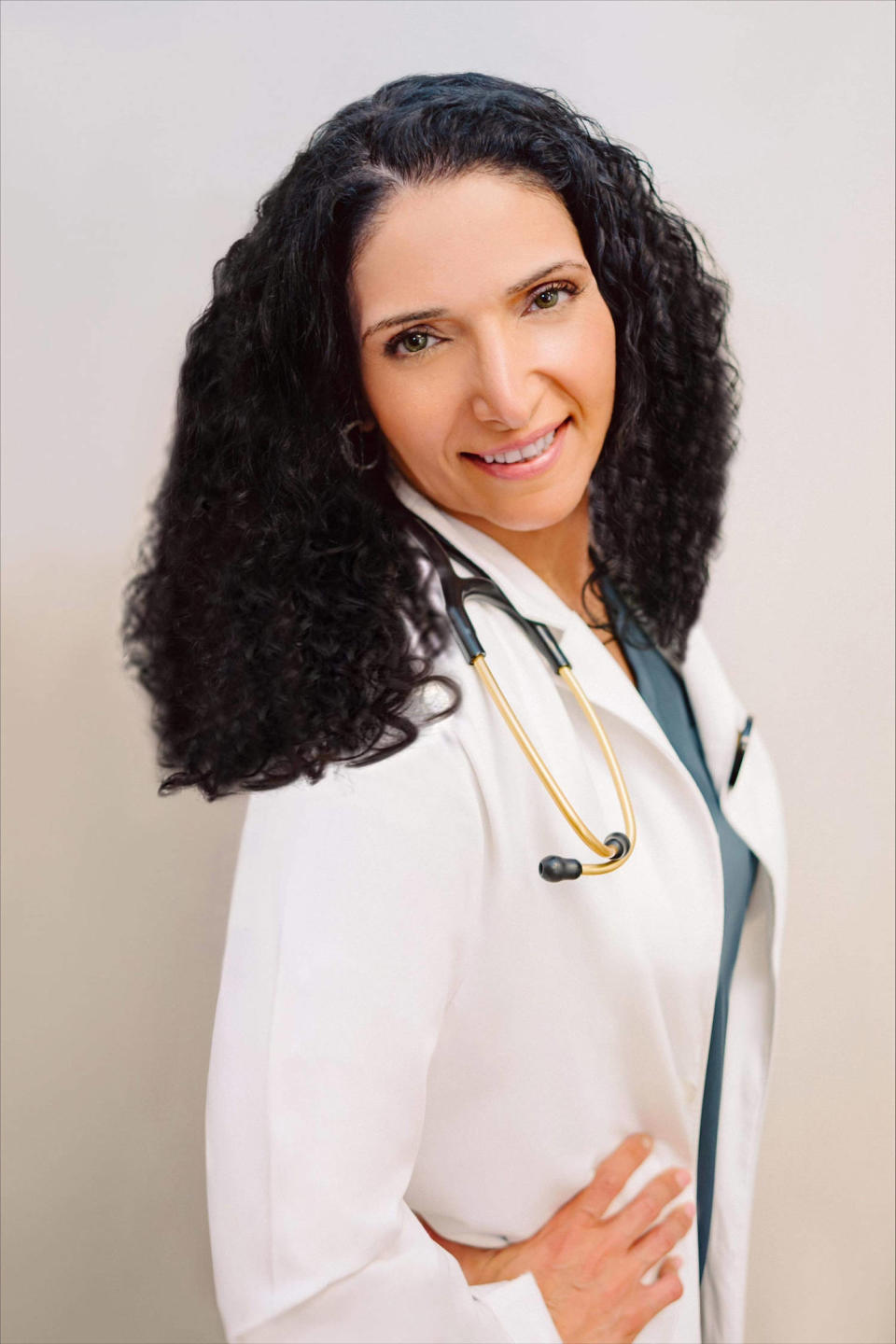I’m a doctor. Here’s how I lost 100 pounds in my 50s — and kept it off
When Dr. Emi Hosoda sees patients struggling to lose weight, she knows what they’re going through.
She herself has grappled with obesity, finally losing 100 pounds and keeping it off since about 2020. But it was a difficult road for many years, with a number of factors working against her.
Now 54 years old, Hosoda says she reached 235 pounds — her maximum weight — after having kids in her 30s. She was able to slim down, but not for long.
“It was fairly easy to lose most of the weight at about 37,” Hosoda, an internal medicine physician in Enumclaw, Washington, tells TODAY.com.
“But then perimenopause hit around 2010, and I started working nights in a hospital, then all bets were off. So I gained pretty much all of my weight back.”
Many women struggle with excess weight in the years leading up to menopause and then during menopause itself, with a lot of hormonal triggers going on, Hosoda told TODAY's Savannah Guthrie and Hoda Kotb when she appeared on the show on Jan. 9, 2023.
Younger personal trainers often will tell women to just eat less and exercise more, but they're not seeing women in their 40s, 50s and 60s, she says.

Hosoda has a strong family history of Type 2 diabetes and says she’s had to take supplements to help with insulin resistance in order to lose weight. She has FTO, a genetic variant that predisposes a person to gain weight. She also had hard-to-diagnose thyroid disease, which made it difficult to slim down. On top of all of that, Hosoda had rheumatic fever as a child and was on antibiotics for years, so her gut health was devastated and took a long time to rebuild.
For all of those reasons, when she sees patients “who are eating hardly anything," exercising constantly and still have trouble losing weight, she tries to discover hidden factors that may be at play.
“The thing that I look for is: Why is this person not losing weight? Because anyone would have the ideal body proposition if they could,” Hosoda says.
She now weighs 135 pounds after restarting her weight-loss efforts a few years ago when her heavy frame left her fatigued and made it difficult for her to work: “When you’re a night ICU doc, you’re running around the hospital all night long and if you’re not in shape, it can be a burden.”

Hosoda shared some of her weight-loss advice in a viral TikTok video.
Here are some of her favorite tips from that clip and her experience overall:
Look at the sugar value of food rather than its calories
This is about following a low-glycemic diet, which focuses on eating foods that keep your blood sugar even rather than just strictly watching calories, Hosoda says. That means avoiding foods like white rice, white bread, potatoes and sugar itself.
Most processed foods are very high in carbohydrates and very low in fiber, “so they can kind of get you in trouble as far as keeping your blood sugar stable,” she warns.
Sugar can mess up a person's hormonal balance and intestinal health so it's a double whammy, she says.
The low-glycemic diet includes moderate amounts of fiber-rich beans, lentils, non-starchy vegetables, fruit and whole grains, as well as lean proteins, such as fish and skinless poultry; and healthy fats found in nuts, seeds and avocado. Studies have found this eating plan can help keep the weight off.
Hosoda advises watching fruit intake and opting for berries because they have a lower glycemic load.
“I’m not anti-fruit. But I think sometimes people overdo fruit or think it’s a free pass. But it does have sugar,” she notes.
Drink enough water
People often mistake thirst for hunger, so they may think they need a plate of food, but would feel satisfied if they drink plenty of water, Hosoda says.
Proper hydration may also slow down aging and prolong a disease-free life, according to a National Institutes of Health study published Monday, Jan. 2. The National Academies of Medicine suggest women drink around 6 to 9 cups of fluids daily, while men consume 8 to 12 cups.
People with heart failure, kidney disease or low sodium levels should check with their doctor about how much water is OK for them to drink before increasing their intake.
Get enough magnesium to handle sugar cravings
Besides managing cravings for chocolate and sugar, optimal magnesium levels also help with muscle tone and keep the heart in the right rhythm, Hosoda says.
You should get your levels checked “before you just willy-nilly take a ton of magnesium,” and people with kidney issues can’t take it, she warns.
If you're healthy and truly need a boost, supplements and foods high in magnesium, including tomatoes, nuts and seeds, can help.
Include strength training in your workouts
If you’re not building muscle, you’re not making the factory that actually burns calories and fat, Hosoda says. Muscle dictates metabolism, so the more of it you have, the more likely you are to stay in shape, Hosoda says.
“A lot of times as we get older, people exclusively do aerobics, and then they wonder why their body doesn’t look good to them. It’s because you need muscle tone to really have the kind of body composition that people imagine themselves having,” she notes.
Hosoda changed her mindset to think of herself as a fit person and a person who exercises every day. Instead of "aerobicizing myself to death," she makes strength training a big part of her workout.
She gets up at 4 a.m. to exercise a minimum of three days a week — warming up on a stationary bike for about 30 minutes and then lifting weights for about an hour. Some studies show people who want to burn fat are better off exercising early in the morning. “I’m a pretty muscular person, so my goal is to take the fat layer off my muscle. So that’s what I do,” she says of her early morning routine.
Cardio is important for cardiovascular health, but when done exclusively, it’s not all that helpful for weight loss, she adds.
Eat five cups of low-carb vegetables per day
Low-carb vegetables provide nutrients and fiber, plus lots of volume to eat so that you don’t feel like you’re being deprived of food, Hosoda says.
She particularly likes Swiss chard, celery, romaine lettuce, carrots and cucumbers.
Be sure to include good fats in your diet
Besides also helping to keep you satisfied, healthy fats can help with inflammation. Hosoda recommends avocado oil, olive oil and walnut oil.
This article was originally published on TODAY.com

